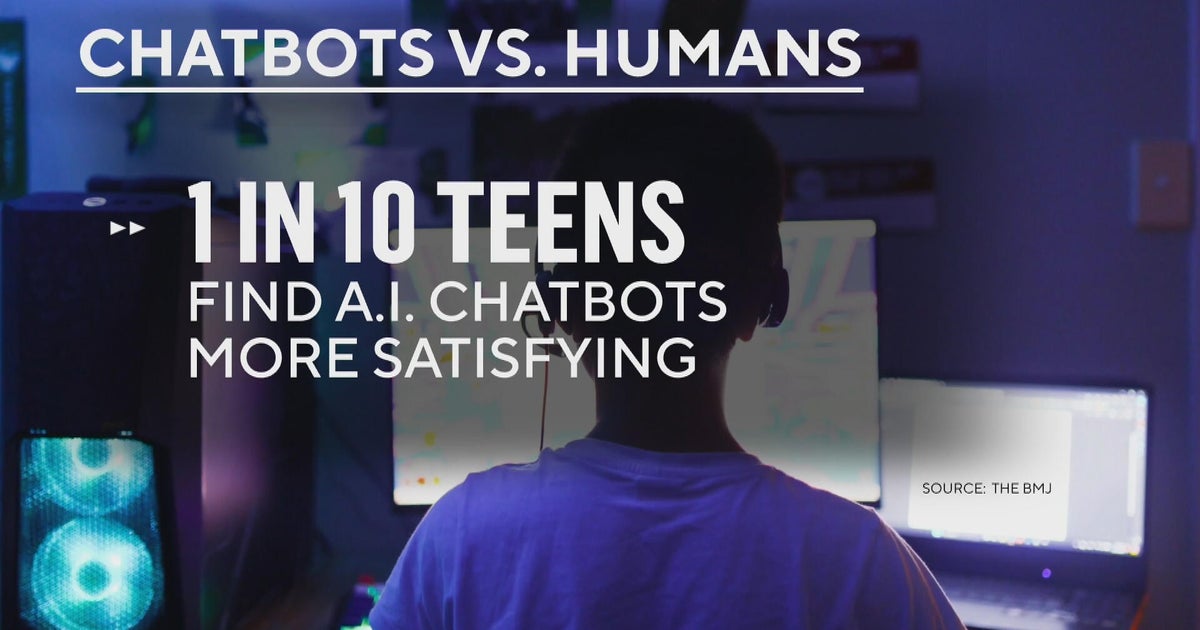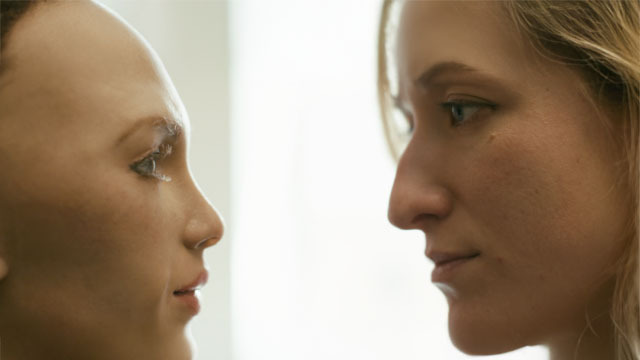No evidence sex robots have any health benefits, report says
As artificial intelligence continues to evolve, things that only used to exist in science fiction movies are now becoming a reality. One of the latest examples is sex robots, somewhat realistic mannequins – though far from "Westworld" quality – with variable ages, appearances, and textures.
Four U.S. companies currently make such robots, also called sexbots. They're priced between $5,000 and $15,000 and the industry is estimated to be worth $30 billion, according to a report from the Guardian.
Sexbots have numerous lifelike features, including the ability to respond to speech and eye-tracking capabilities, while others have customizable oral, vaginal, and anal openings.
But while sex robots are often marketed not just as high-end sex toys but as having certain therapeutic uses and possible health benefits, new research challenges those claims. The report, published in the BMJ, looked at all available scientific evidence on the topic and faced a huge roadblock: there isn't any.
"We found a number of health claims were being made, which we analyzed," study co-author Chantal Cox-George, an academic foundation doctor at St. George's University Hospitals with the NHS Foundation Trust in London, told HealthDay. Among the claims: "That sexbots might help safe sex, be therapeutic for people with sex or companionship problems, and might reduce sexual abuse of children."
However, in the end, "we were unable to find any empirical evidence in the medical literature to support or refute any of these," she said.
One manufacturer of sexbots, California-based RealBotix, says that many of its customers purchase their products for more than just sex.
"They're not these nasty, dirty perverts who can't get enough sex. It's really about companionship," Matt McMullen, founder and CEO of RealBotix, told CBS SF Bay Area. "For me, the idea of conversing with this character, and actually stimulating a bone that's actually above and beyond the physical, that was what that appealed to me."
Brick, a man who asked to remain anonymous and owns fixe sex robots, agrees. He runs an online forum and says loneliness plays a role. He explained how there are numerous owners who are amputees or disfigured. He says there are many members who have trouble connecting with other people.
Others, he suggested, may turn to the bots after experiencing the loss of a spouse or significant other.
"I've talked to a lot of men on sites — women who have lost their mates of 30, 40, 50 years — and they're crushingly lonely," he said. "It kind of transcends the whole sex thing."
Realbotix even hopes to expand beyond sex and create other roles for the bots, such as a companion for the elderly.
But Cox-George and her co-author Susan Bewley, of the Women's Health Academic Center at King's College London, searched for scientific or medical studies and found no data so far to support that these robots provide any therapeutic benefit.
Another supposed benefit of sexbots that the researchers pushed back on is the idea that the devices might be a welcome option for people with disabilities. They respond, it "seems patronizing to argue for a 'lesser' sexual experience when most people with disabilities can form mutually satisfying relationships."
Other arguments have been put forth that sexbots may help curb or channel deviant behaviors, such as rape or pedophilia. One manufacturer even offers a child-like version known as a "pedobot."
But the authors of the report note that sexbots used for such purposes may run the risk of normalizing this behavior.
"While many sexbot users may distinguish between fact and fantasy, some buyers may not, leading to concern about potentially exacerbating the risk of sexual assault and rape of actual children and adults," they write.
Given this and the overwhelming lack of evidence on any effective treatments of sexual offenders against children, Cox-George and Bewley "strongly caution against" the use of sexbots for pedophiles "unless as part of robust, scientifically and ethically acceptable research trials."
The researchers also said there's no evidence to suggest that sexbots could help reduce the spread of sexually transmitted infections or curb sex trafficking, sex tourism, or other aspects of the sex trade.
Noel Sharkey, a professor emeritus of artificial intelligence and robotics at the University of Sheffield in England co-founder of an organization called the Foundation for Responsible Robotics published a report last year on the sexual future of humans and robots.
The BMJ report goes "a lot further than we did and actually delved into hundreds and hundreds of journals," Sharkey told the Washington Post, yet arrived at the same conclusion that there is no evidence for clinical use.
Cox-George and Bewley say that doctors need to be prepared to answer inevitable questions about the impact of sex robots on health, and they call for more research in the area. However, until there is any data that points to potential health benefits, they recommend that doctors steer clear of recommending sexbots to their patients.
"The overwhelmingly predominant market for sexbots will be unrelated to healthcare," they conclude. "Thus the 'health' arguments made for their benefits, as with so many advertised products, are rather specious."





